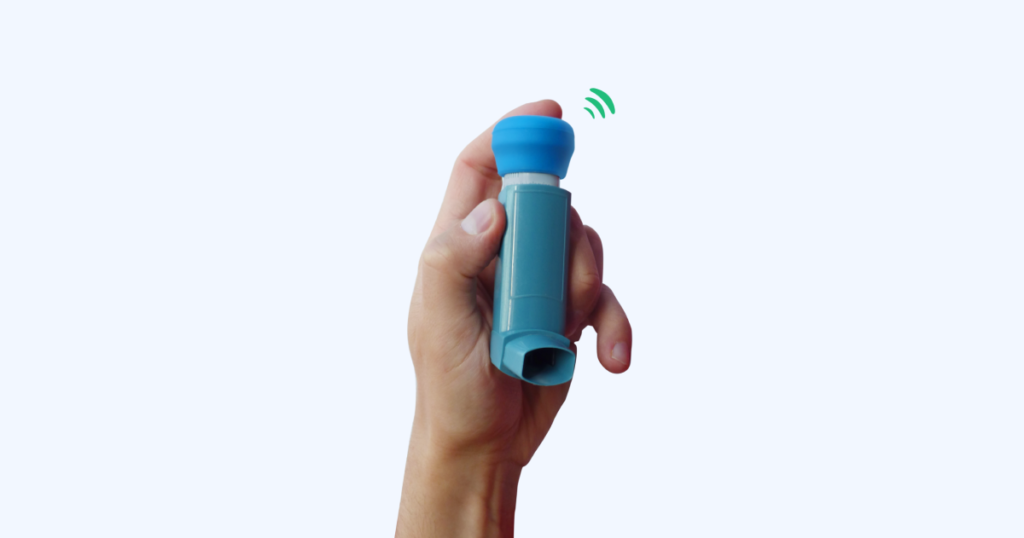The concept of digital health makes a significant impact on healthcare and the development of the quality of patient experiences. As a chronic disease, asthma is at the center of digital development because it requiers constant monitoring. Unceasing, accurate and timely asessment of the patient’s condition is the basis for the digital approaches to health and a key issue in possible prevention and effective treatment.
IoT and technological innovations
IoT can be characterized as a network and set of devices used to collect, transmit and distribute data over the Internet. It is currently one of the largest research areas because it can be applied within practically every field. The medical industry is also involved in this process, and smart medical devices are used by both doctors and patients. One type of such devices, which is gaining increased popularity is the smart inhaler. These are devices that connect to the mobile application on the phone. They allow following every important information such as the schedule of taking medication or circumstances of the use. The sensor is placed on the inhaler and communicates with the application via Bluetooth. In the case of FindAir devices and apps, data is recorded with each drug use and entails terms of uses, specific location, time and environmental data. Such mobile devices are intentionally designed to facilitate adherenece to the treatment plan by collecting data. Soon they may be used to track treatment progress, and even predict asthma attacks.
The use of smart inhalers in the treatment of asthma

Asthma is a chronic disease that presents a very heavy burden to many people. One of many factors that contribute to poor asthma control is non-adherence. Consequently, the fundamental need for innovative solutions that could facilitate the monitoring and keep good asthma control is significant. As a consequence smart inhalers start to form the basis for the development of better treatment. Therefore, the value and interest in medical electronic devices have grown significantly in recent years. The numbers, oppportunities, and quality of sensors and data systems keep increasing. People who use smart inhalers can enhance and personalize asthma management through:
- data collection product (smart inhaler)
- education about health condition,
- monitoring symptoms with feedback,
- rescue medication action plan,
- access to treatment data,
- lifestyle tips.
Read more: Benefits of virtual healthcare for medical entities
Benefits of IoT technology to asthma treatment enable patients to get help when they need it, even in remote regions. Smart inhalers reduce the time required to make a diagnosis and simplify research due to the significantly faster flow of all the most meaningful information.
The future of IoT in healthcare
The extremely quick development of IoT in the medical industry ensures the widespread use of this concept in every area of medical practice. In time this technology may encounter some limitations which cover: energy period, memory period, and memory power limitation. However, the intensification of the development of IoT technology in the field of medical care will be caused by the increase in the global population, more frequent occurrence of chronic diseases such as asthma, associated with the increasing demand for tools for monitoring one’s health.





